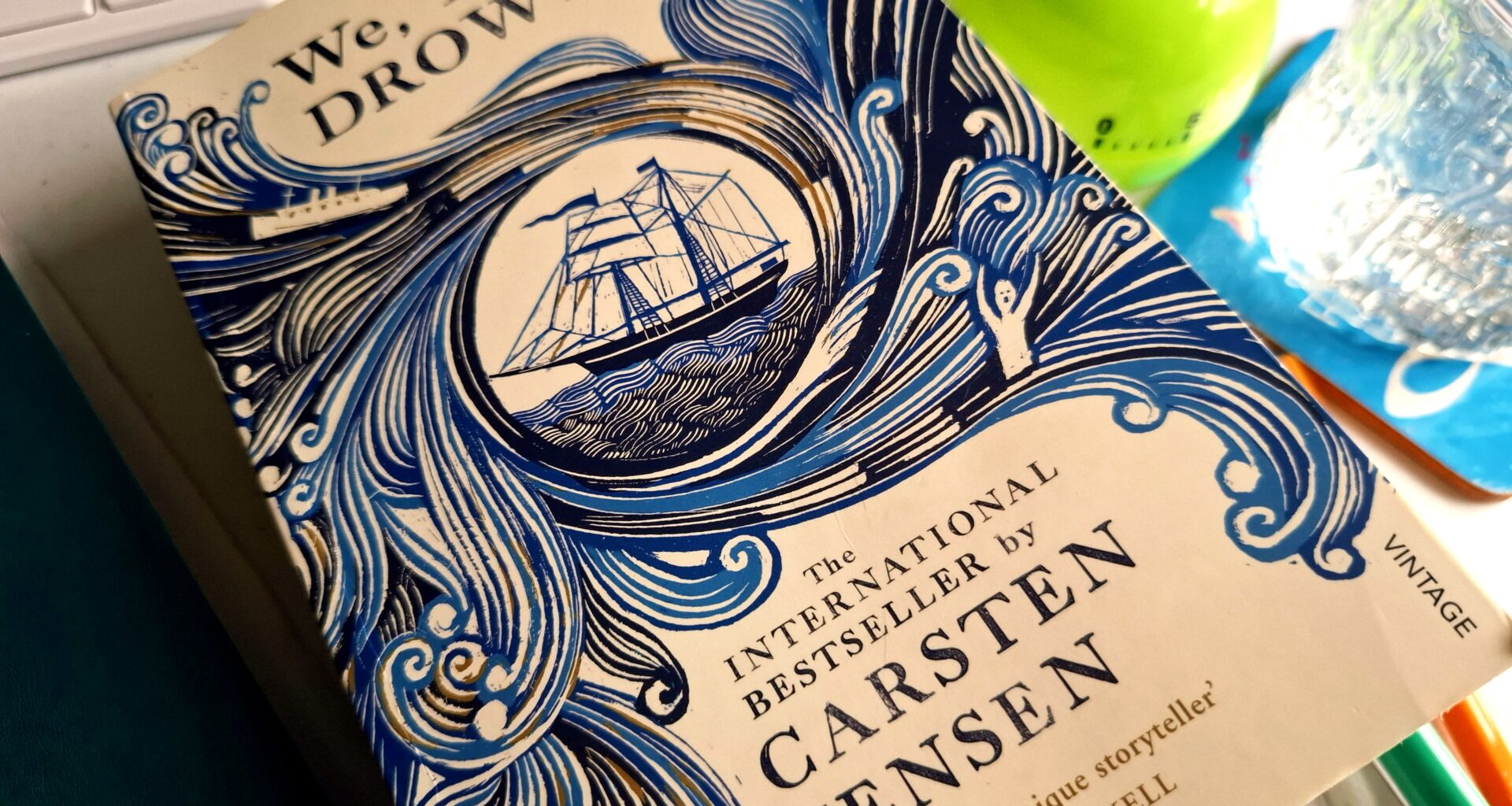This is a book that reminds me again why I fell in love with Denmark. It is now vital that I follow through on my aim of learning the Danish language properly so that I can experience this book in its original form, with all of the subtlety and humour that I will have missed from reading it in English.
We, the Drowned starts with a sentence whose strangeness and humour sucks you into its heart straight away. However, whilst that winning opener suggests that the book to follow is going to be a ripping yarn of humour and adventure on the high seas, the novel takes a different pathway once it has you in its clutches.
This book is, first and foremost, the history of a town told via its people. Marstal today is a small, sleepy town in a forgotten corner of Europe which only Danes, northern Germans (and this odd, random, but very lucky Brit here) know about. Today it is a beautiful town on an unspoilt island, made all the more stunning for its sleepy isolation and silence. In the time when this novel takes place, however, Marstal was a centre of sea-going commerce and ship-building. It is clear that Jensen is steeped in the culture and setting of Ærø and in its history. The whole book is a love letter to Ærø and to the town of Marstal in particular.
As a historical novel, We, the Drowned is both intimate in its focus and large in its scope, partly due to the world-wide travel of its cast of main characters, all of whom are sailors. The plot is formed by the lives of a succession of characters whose life spans interlock and influence each other, one generation onto the next.
It is a very androcentric book; this is partly because of the time period from 1848 – 1945 when women had to stay at home and pick up the pieces the men left behind – in that sense, they were living aspects of the two world wars before they happened – however, there is more to it than that. The central character, Albert, who permeates most of the novel, is the narrator with whom Jensen has the deepest relationship. He is a sailor and eventually a captain, but he is also a thinker and a pursuer of truth, at least until the end of his life when he both literally and metaphorically gets stuck in the mud. It is at this point that it turns out the only people Albert can’t empathise with or relate to are women, despite the fact that he was mostly raised by them in the absence of his sailor father.
Throughout the book, there are recurring themes and motifs. One of them is the relationship between fathers and sons. Or male mentor-figures and the boys who look up to them. The influence that such figures have on the lives of their sons is examined in depth. Another recurring motif is the male father, teacher or ship’s overlord who is physically and mentally abusive and/or actively neglectful to the boys or young sailors in their power. Forms of this character appear and re-appear in many guises through the novel. The responses of the young men abused by these characters come in a variety of forms, almost like the author is investigating the issue from every angle to try and find a way in and through it. When the character Knud Erik “…didn’t want to get to know another human being too well. He was afraid that what he might discover could destroy him.” It’s not the war that’s done that to him, although he thinks it is, it’s his mother, dead father and Albert’s failure to love him and his mother that’s done the damage.
The treatment of war as a subject is also interesting. The first war covered by the plot happened in 1848 and is right at the beginning of the story. There is some reference to violence and how the men from Marstal were neither trained nor prepared for it, but overall it is approached with light comedy and little depth when compared to the First and Second World Wars. In the latter two instances, Jensen sets up the splitting of souls as a result of unspeakable trauma from war and then pierces these with the light of a microscope – first from the point of view of someone left at home and then from the perspective of someone operating on the frontiers of a war. As in real life, no one is left unchanged.
With the exception of Albert, Jensen’s narrators are mysterious. There is a timeless and universal “we”, the individual source of which is never revealed. It is the collective voice of those souls who built Marstal. This is a technique not much used in English language novels and its effect is initially a little disturbing since the universal “we” acts both as a first person character directly engaged in the action, with opinions about the main characters, and also as an omniscient narrator who is party to everything the main characters do, think and feel.
In some respects this is a cold book in which most of the characters die, but it concludes with a skilful drawing together of lives and threads that rise to an emotional and successful finale. The book as a whole evokes Denmark and the Danish people – their character, their history. Its gentle humour – especially at the start – is redolent of the Danish people and how they see themselves. Having fallen in love with this seafaring nation, I fell in love with them all over again as I read Carsten Jensen’s We, the Drowned.

